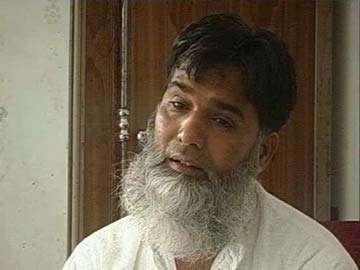Acquitted by SC after 11 years in jail, crowdfunding helps man reclaim life. Read how
Adam was already shattered after an 11-year-long battle for justice until a hope arrived from the digital world in the form of ‘crowdfunding’
Ahmedabad: Getting a life back on track is not easy, especially for someone who had to spend 11 years in jail for a crime he did not commit. 53-year-old Adam Ajmeri suffered for 11 years in prison after being arrested on charges of involvement in the 2002 attack on the Akshardham temple complex in Gandhinagar, Gujarat.
Ajmeri went through the worst phase of his life, until he was acquitted of all charges by the Supreme Court in May 2014. In September 2002, two terrorists had entered the Akshardham temple complex in Gandhinagar, and killed 30 people and injured more than 80. Ajmeri and four others were arrested from Shahpur and Dariapur areas of Ahmedabad in August 2003.
By the time his acquittal came, he had already spent over 11 years in Sabarmati Central Prison, Ahmedabad after being wrongfully convicted and sentenced by the POTA Special Court and the Gujarat High Court.
Life, since then, has not been easy for Ajmeri. An auto-rickshaw driver before he was arrested for the attack, Ajmeri has seen most of his loved ones turned their back on him despite his acquittal. “Getting acquittal was not enough to convince many from whom I sought work for a living,” he told The Times of India.
Adam was already shattered after an 11-year-long battle for justice until a hope arrived from the digital world in the form of ‘crowdfunding’ – a way of raising finance by asking a large number of people each for a small amount of money.
With the money he received as generous donations, Ajmeri started contributing to Gujarat's white revolution with a small dairy farm at Mandli village in Mehsana. Ajmeri contributes 150 litres by the end of every 10-day payment cycle at a milk-cooperative.
Recalling the crowd funding story, Adam Ajmeri said, “People refused to employ me. But two strangers – both research scholars from National Law University in Delhi – proved saviours”.
The two scholars met Ajmeri while doing research on death penalty in February 2014. Two months after Ajmeri was released from the jail, he met Anup Surendranath, director of Death Penalty Research Project, and asked for help.
“I remember meeting Anup Surendranath and his associate who listened to my plight sympathetically,” Ajmeri further added.
The two turned out as saviours for Adam as they launched a campaign on a crowd-funding website run by an NGO.
Surprisingly, donations, as much as Rs 7 lakhs, poured in from unknown donors.
“The crowdfunding helped me start a dairy farm at Mandali village, 85 kilometres from Ahmedabad. I may not be earning much but the financial help meant a lot to me. Out of the Rs 6,500 which I earn from the dairy every 10 days, Rs 4,500 is spent on the upkeep of the stable,” said Ajmeri.
The 52-year-old Adam has two sons and four daughters, two of whom are married. He told that his younger son, Mohammed al Sadman will appear for class X board exams this year, while the elder one, Almas, makes handkerchiefs at home.
Trying to put the pieces back together, Ajmeri said that he wants to expand his dairy business and add some more goats to his stable.
